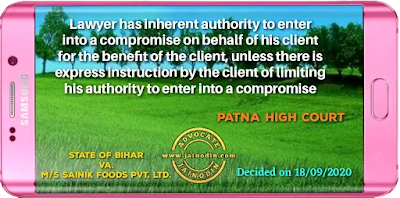Incidentally it was urged by Mr. Majumdar that even if the court proceeds on the assumption that the letter and the cable were received, it is not open to this Court to look into the contents of the letter and the cable because the contents are not proved as the Managing Director of the appellant company who is supposed to have signed the letter and the cable has neither entered the witness box nor filed his affidavit proving the contents thereof. Reliance was placed on Judah v. Isolyne Bose. In that case a letter and two telegrams were tendered in evidence and it was observed that the contents of the letter and the telegram were not the evidence of the facts stated therein. The question in that case was whether the testatrix was so seriously ill as would result in impairment of her testamentary capacity. To substantiate the degree of illness, a letter and two telegrams written by a nurse were tendered in evidence. The question was whether in the absence of any independent evidence about the testamentary capacity of the testatrix the contents of the letter could be utilised to prove want of testamentary capacity.
Obviously, in these circumstances the Privy Council observed that the fact that a letter and two telegrams were sent by itself would not prove the truth of the contents of the letter and, therefore, the contents of the letter bearing on the question of lack of testamentary capacity would not be substantive evidence. Undoubtedly, mere proof of the handwriting of a document would not tantamount to proof of all the contents or the facts stated in the document. If the truth of the facts stated in a document is in issue mere proof of the handwriting and execution of the document would not furnish evidence of the truth of the facts or contents of the document. The truth or otherwise of the facts or contents so stated would have to be proved by admissible evidence, i.e. by the evidence of those persons who can vouch safe for the truth of the facts in issue. But in this case Bhikhubhai Gourishankar Joshi who filed an affidavit on behalf of the appellant has referred to the averments in the letter and the cable. He is a principal officer and constituted attorney of the appellant company. Once the receipt of the letter and the cable are admitted or proved coupled with the fact that even after the dispute arose and before the suit was filed, in the correspondence that ensued between the parties, the respondent did not make any overt or covert reference to the arbitration agreement and utter failure of the respondent to reply to the letter and the cable controverting the averments made therein would unmistakably establish the truth of the averments made in the letter. What is the effect of averments is a different question altogether but the averments contained in the letter and the cable are satisfactorily proved.[Para No.16]
20 September 2020
19 September 2020
Lawyer has inherent authority to enter into a compromise on behalf and benefit of his client, unless there is express instruction by the client of limiting his authority to enter into a compromise
Having regard to the law laid down by the High Courts of this country, it can be clearly deduced that the various High Courts are of the unanimous view that even in cases where there is no express authorization to enter into a compromise under the inherent authority impliedly given to the counsel, he has power to enter into a compromise on behalf of his client for the benefit of the client, especially in absence of any express instruction by the client to his counsel, limiting his authority to enter into a compromise or give reason.[Para No.8]
A bare perusal of the review petitions, filed by the Department of Mines and Geology, Government of Bihar, Patna, would show that there is no pleading to the effect that the learned Special P.P., Mines was expressly barred from giving his consent to orders being passed by the Hon'ble Patna High Court, keeping in mind the interest of the Department. It is a well settled law that the power to give consent or enter into a compromise in a particular given case is inherent in the position of an advocate in India and such power is deemed to exist because its existence is necessary to effectuate the relations between advocate and client, to make possible the duties imposed upon the advocate by his acceptance of the cause of his client. The advocate is to conduct the cause of his client to the best of his skills & understanding. He must, in the interest of his client, be in the position, hour by hour, almost minute by minute, to advance this argument, to withdraw that; he must make the final decision whether evidence is to be given or not on any question of fact; skill in advocacy is largely the result of discrimination.[Para No.11]
It is equally a well settled law that a compromise settlement made in good faith by a counsel, when sanctioned by the Court in its order, is binding upon the client, as is also deducible from the various Judgments referred to herein above in paragraph No. 7 of this Judgment. Therefore, this Court is of the view that even in cases where there is no express authorization to enter into a compromise under the inherent authority impliedly given to the counsel, he has power to enter into a compromise on behalf of his client for the benefit of the client, especially in absence of any express instruction by the client to his counsel, limiting his authority to enter into a compromise or give reason. Consequently, it is held that the review petitioners-State authorities are bound by the orders passed by the Court on the basis of consent / compromise.[Para No.12]
Subscribe to:
Posts (Atom)


